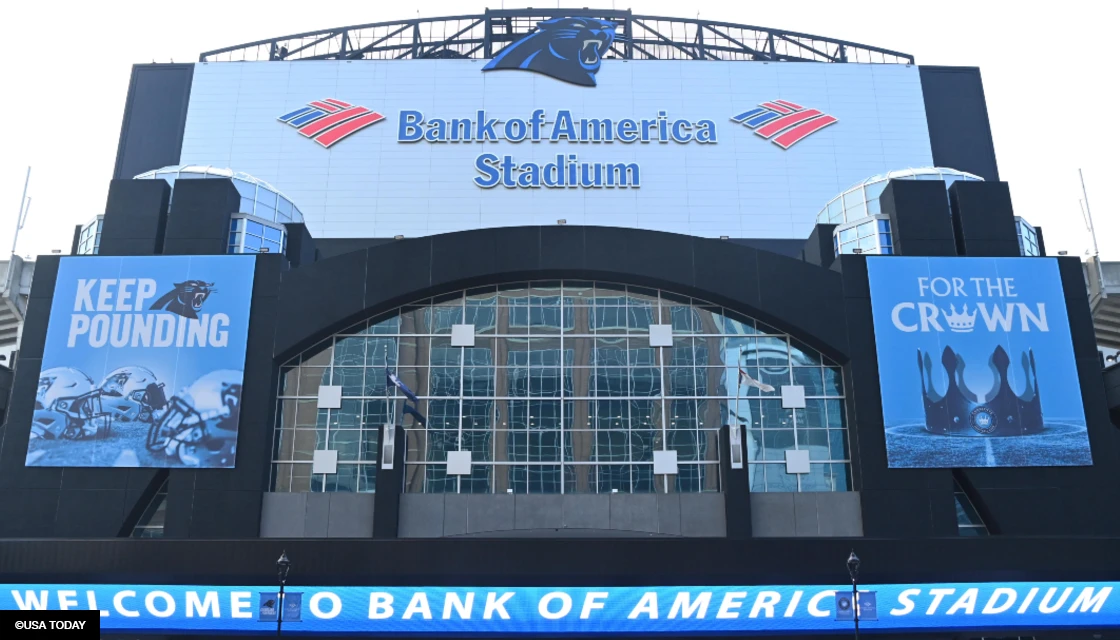A recent public opinion survey regarding North Carolina sports betting indicated what has frequently been the case in similar polls and even elections throughout the country — that, generally, people prefer to have sports gambling that’s legal and regulated.
However, an inquiry, which went beyond what such polls often measure, delivered what might be a more influential message that could impact the North Carolina legislature’s voting on the issue this year: The topic of expanding sports gambling is not an issue that is a difference-maker for voters at the ballot box, especially when it comes to deciding on candidates.
That somewhat esoteric political conclusion in the survey clearly was aimed at a very specific audience — the North Carolina legislators who once again will consider online sports gambling in the state. A year ago, online sports gambling, often referred to as mobile sports wagering, appeared ready to pass in North Carolina but it failed by a single vote in the state House of Representatives after passing in the state Senate. It’s expected to be considered again in 2023.
To be clear, limited sports gambling already is conducted in North Carolina as in-person retail wagering at Native American casinos. However, online sports gambling, if legalized, would reach far more customers and would dwarf retail betting.
BetCarolina.com suggested there really was no good reason for it failing in a column last July.
Does Gambling Stance Sway Voters?
Throughout the process of bringing an online sports gambling bill for approval in the General Assembly last year, the perception among some legislators who were advocates was that some of their fellow lawmakers were concerned about the impact their votes on the bill would have on their own electability. In other words, some lawmakers feared that an anti-gambling sentiment among their constituencies would adversely impact their elections. In fact, some committee votes on the gambling issue were put on hold until candidates could get through their primary elections.
So, the results of the recent survey might work to assuage those concerns among some reticent North Carolina legislators.
The survey, conducted by a Raleigh-based polling, consultancy and policy analysis firm called Differentiators, posed questions to 600 voters about their sports interests, their attitudes about gambling, as well as voting tendencies.
You can see more about the polling, methodology and philosophy at DifferentiatorData.com.
Some Findings in Survey
Here is a sampling of questions and the results:
1.. Would you describe yourself as a sports fan?
- Yes: 59%
- No: 39%
2. Favorite college athletics team?
- Duke: 14%
- North Carolina: 12%
- North Carolina State: 11%
- East Carolina: 2%
- Appalachian State: 2%
- Wake Forest: 1%
- Clemson: 2%
3. Which pro team do you follow?
- Panthers: 19%
- Dallas Cowboys: 6%
- Pittsburgh Steelers: 5%
- Buffalo Bills: 4%
- Atlanta Braves: 4%
- Hurricanes: 3%
4. Would you support or oppose the Legislature legalizing and regulating sports betting?
- Strongly support: 17%
- Somewhat support: 26%
- No opinion: 22%
- Somewhat oppose: 14%
- Strongly oppose: 21%
5. Are gaming issues important in voting for a candidate?
- Yes: 18%
- No: 80%
6. Would a stance on gaming issues impact your support?
- Yes: 23%
- No: 25%
- Don’t care: 52%
Dissecting the Survey
Regarding attitudes toward sports gambling in general, the conclusion among voters was that more voters favored than opposed.
The survey indicated 43% of those asked “strongly” or “somewhat” supported legalizing sports gambling while 35% “strongly” or “somewhat” opposed, with 22% voicing no opinion. Supplied with more information on the sports gambling issue, those polled shifted slightly with 47% indicating some level of support and 39% indicating some level of opposition.
Support and opposition among voters did not break down along party lines. Instead, differences of support and opposition broke down along gender categories with males more likely to support and females more likely to oppose.
Results of the North Carolina survey mirrored past actual election results on sports gambling issues in a variety of states. For instance, in 2020, a year when elections were contentious and partisan fervor ran high, sports gambling issues were on ballots in a half-dozen states, some leaning Democrat, some leaning Republican. But in all cases sports gambling measures were approved by voters by wide margins.
However, the North Carolina survey’s conclusions regarding a more nuanced question, how voters felt about politicians with sports gambling in mind, were explicit.
Specifically, the survey results on the question of whether gaming was important for a candidate, 80% of voters said “No.”
And on the question of whether gaming issues would have an impact on their support for a candidate, 52% said flatly they “don’t care.” And if it did impact support for a candidate, those who said “more” or “less” were almost evenly divided.
The survey concluded that gaming is not a partisan issue; that unlike many other ballot issues, it is not polarizing, and that it is not a deciding factor in choosing candidates.
However, what can be accomplished with extra revenue, presumably from gambling sources, is an issue that moves voters.
Yet, it remains to be seen how the North Carolina legislature, which in 2023 is constituted of 25% new members since the last time online sports gambling came to a vote, will act this time.
In the meantime, stay close to BetCarolina.com for updates on the road to legalized mobile sports betting and for North Carolina sportsbook promo codes.







